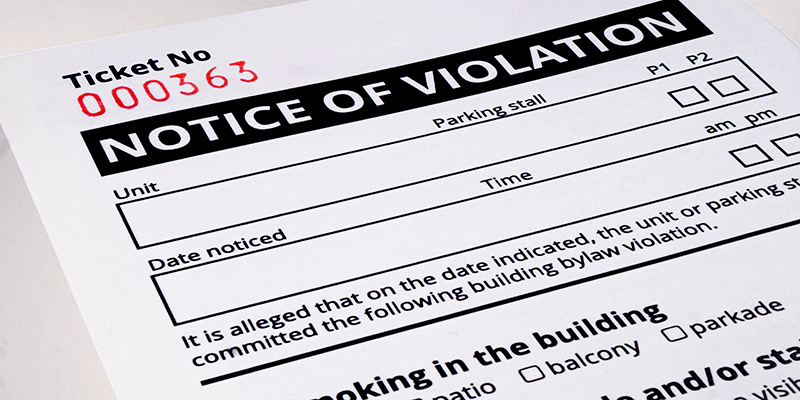Rental lease violations happen every day. Every landlord has had the misfortune of having a tenant break a stipulation in their lease agreement. The difference between a good landlord and a bad one is in the way these violations are handled.
The Proper Way to Resolve Rental Lease Violations
While a lot of Americans own their homes, there is still a significant chunk of the population living in leased or rented properties. Depending on the location, houses can be very expensive. Leasing is great in that it allows people to live in these expensive neighborhoods without buying houses. It also gives them an opportunity to get a feel of the community first before committing to purchasing a property in the area. For some, leasing just means they get to sleep with a roof over their head at night.
Ideally, every tenant that comes your way follows your lease agreement to a T. Sadly, no tenant is perfect. Like every landlord, you are most likely to encounter a tenant or two who will violate your rental agreement. It could be in the form of rental delinquency or misuse of the unit. Whether you are a new landlord or have only recently come across a problem tenant, you must know the proper way to deal with rental lease violations. Knowledge is power, and it may very well protect you from liability, too.
What Is a Lease Violation?
 Before learning how to handle rental lease violations, you must first understand what constitutes a lease violation. Tenants who want to lease a particular property or unit must sign a lease agreement.
Before learning how to handle rental lease violations, you must first understand what constitutes a lease violation. Tenants who want to lease a particular property or unit must sign a lease agreement.
This agreement outlines the stipulations expected of the tenant such as when they should pay rent. The tenant must read the agreement prior to signing so they can negotiate any terms they dislike. Of course, the terms of the lease agreement must be reasonable. Otherwise, you as a landlord can face legal liability.
A lease violation is simply a breach of contract. A tenant commits such an act if and when they go against the stipulations outlined in the agreement. Violations can happen when tenants take certain actions or fail to take certain actions (in the case of failure to pay rent and the like).
How to Handle the Most Common Lease Violations
Rental lease agreement violations are not uncommon. Even the most responsible tenants might make a mistake every once in a while. As a landlord, you might be tempted to let small errors slide, provided your tenant does not make a habit of it.
Eviction is not always the first answer to your problems unless the tenant partakes in illegal activity. In fact, evicting your tenant for something as small as excessive noise will only cause more trouble for you down the line. Not only is it hard to find good tenants, but turnover can be expensive, too.
However, that does not mean you can let your tenants walk all over you. Rental lease violations are serious, and you must take the necessary steps to resolve them when they arise. Here are the most common violations and how you should handle them.
1. Long-Term Guests
Tenants have guests come over their leased units all the time, and that in itself is not a problem. But, when their guests begin to overstay their welcome, it becomes an issue. Long-term guests are really just unofficial tenants living in the property without your permission. Visitors can stay overnight, but you must make sure to include limitations in your lease agreement.
When creating your lease agreement, you must include the maximum number of days guests are allowed to stay. Any number over that is considered a violation of that provision. Make sure to also include the consequences of the violation, such as increasing the rental fee by $500 per person per month or terminating the lease.
2. Unauthorized Pets
Animals can inflict some serious damage to your property, so most landlords have a strict pet policy that tenants must follow. Make sure this policy appears in your lease agreement, along with a detailed description of any consequences the tenant faces should they have an unauthorized pet on their property.
You can impose a fine and then move up to eviction if the tenant does not remedy the situation. Of course, you cannot rely solely on sight or hearsay. You must have photographic evidence to support your claim.
3. Unpaid Rent
One of the most common problems landlords face is unpaid rent. Lease agreements should state the due date for payments, so even a single late payment can constitute a violation of the agreement.
The turnover process can be exhausting, though, and finding suitable tenants even more so. If you have never had a problem with the tenant in the past, you may feel inclined to give them a pass. A good way to remedy this is to stipulate terms for late payments in your agreement.
You can impose a rent protection lease violation fee or a late payment fee as well. That way, tenants can have some room to breathe and you still receive checks in the mail.
But, if the tenant refuses or fails to pay rent, you can start the eviction process. You can first issue a lease violation notice or, in this case, a pay-or-quit notice. This notice should demand payment of the amount due by a specific time. If the tenant fails to settle their debt by the deadline, you can force them out of the property.
4. Property Damages
 Property damages are no joke — not only are they time-consuming to deal with, but they can also be very expensive.
Property damages are no joke — not only are they time-consuming to deal with, but they can also be very expensive.
Immediately before your tenant moves in, it is a good idea to document the condition of the property. Hire a professional to conduct an inspection to get a written assessment of the state of the property.
You can also take detailed photographs of the property, making sure to have your tenant sign the photo log acknowledging that the photos are accurate prior to their move-in.
When you have detailed documentation, you can comparatively assess the current state of the property. Perform property inspections every so often to keep things in good shape. The tenant should cover the cost of any property damages arising due to neglect, reckless actions, or whatever reason.
5. Commercial Use of Property or Unit
Working from home on a freelance basis is a far cry from turning the actual residence into a business location. If your tenant is receiving clients or large quantities of supplies on the regular, you have a right to put a stop to it.
You must also intervene when tenants use the leased property as a production zone. Tenants should only use the property as a residence, as it is intended. Make sure to include such language in your lease agreement.
Lease Violation by Landlord
Landlords are not exempt from committing rental lease violations. Tenants have certain rights, and infringing on these rights can spell legal trouble for landlords. For instance, tenants have a right to a habitable home. As such, landlords must ensure the rental property is fit to be lived in.
Tenants also have a right to privacy, which means landlords have no authority to enter the leased property whenever they like. If you as a landlord need to conduct inspections, address maintenance issues, or perform repairs, you must give your tenant reasonable notice.
When landlords violate these rights, tenants can take action. This can range from reporting code violations to filing a lawsuit. In some cases, tenants can withhold rental payments or even terminate the agreement as a result.
It Starts With the Lease Agreement
Throughout history, landlords and tenants have long had contentious relationships. Rental lease violations are a common point of disagreement between the two parties. As a landlord, you must know how to deal with these violations when they happen.
It is equally important to include detailed information on stipulations and all expected consequences in the lease agreement to protect yourself from lease violations. After all, you cannot punish a tenant for something they did or did not do if the terms were never defined in the agreement.
Many rental property owners don’t want to handle lease violations by themselves and would prefer help from someone else. If you can relate to this, check out Rental Choice’s list of property management companies that can help you with this task.
RELATED:
- Your Guide On How To Evict A Tenant
- Avoiding Bad Tenants At All Cost
- 11 Common Landlord Tenant Issues And Solutions




 Company
Company